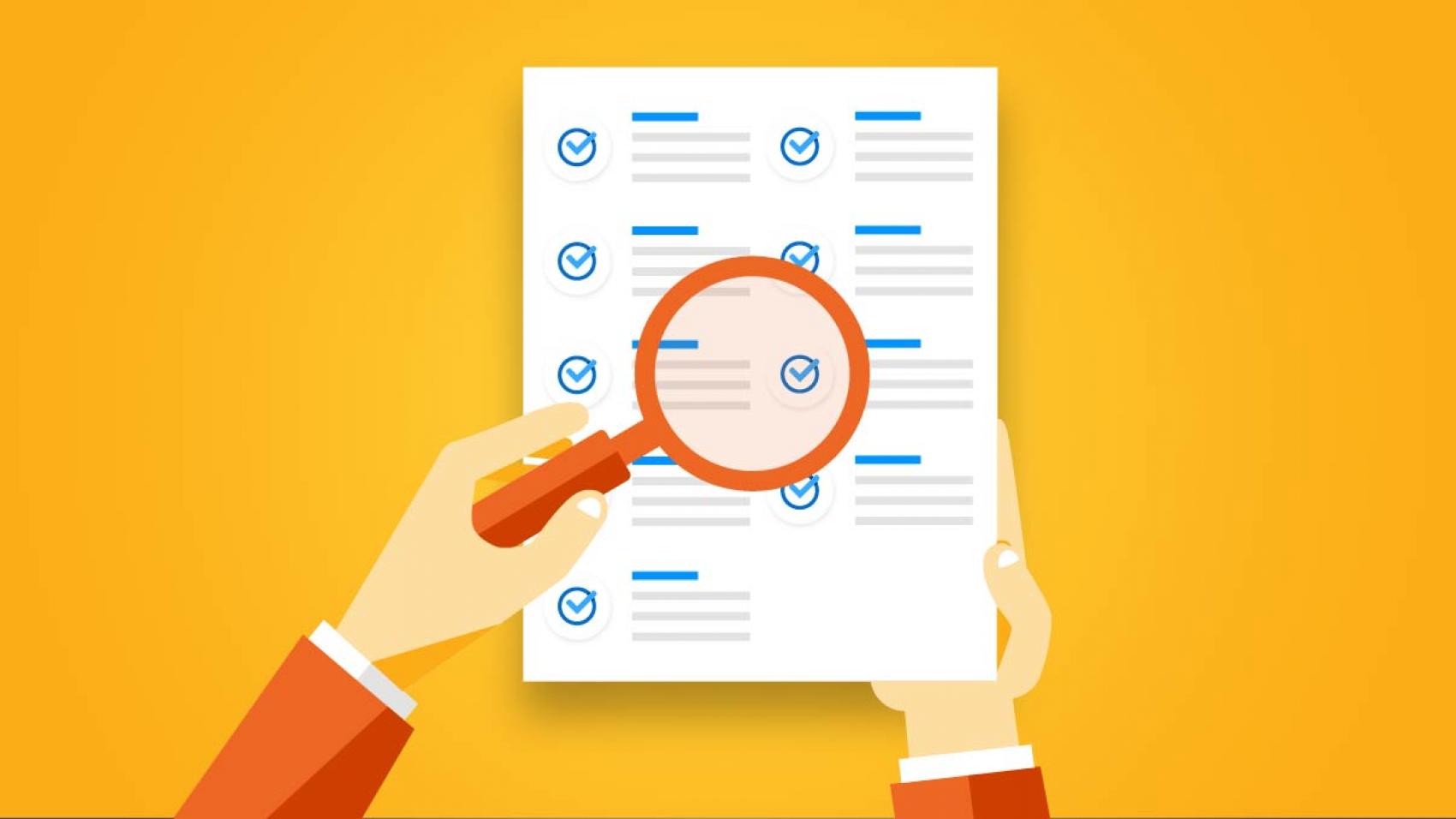7 Critical Auditing Skills to Enhance Your Audit Career Path

In the fast-paced and ever-evolving landscape of modern business, the role of audit professionals has undergone significant changes. In a recent survey conducted by Grant Thorton, more than 90% of financial leaders plan to continue or increase their investment in automation this year. That means strong technical auditing skills alone are no longer enough to stand out in the competitive market.
In 2024, the qualities that distinguish great audit professionals revolve around their ability to navigate a complex risk landscape and tackle emerging risks while embracing collaboration, technology, and continuous learning. So now is the perfect time to brush up on those soft skills: communication finesse, astute critical thinking, and adept relationship building.
Developing auditor skills
By dedicating time to these skills, you can set yourself apart from other auditors. The modern-day auditor embraces the rising importance of integrating internal audit and risk management across the organization. With a holistic understanding of risk across the business, auditors can stay ahead in a rapidly changing business and regulatory environment.
Discover seven essential skills that can help propel your auditing career into the future.
1. Relationship building
In the world of remote work, auditors are facing new challenges when it comes to creating and nurturing relationships. Luckily, many internal auditors have been able to work from home. Like other professions, this has put a strain on how close auditors can get to know their managers and the people they work with.
According to the Association of Chartered Certified Accountants, strong relationships with management can greatly improve auditors' business acumen, keeping them in the loop about business plans, changes, and risks that could affect their audit and risk management plans.
But don't worry, there's a way to overcome this hurdle! Set aside dedicated time in your calendar for strategic relationship building. By doing so, you can strengthen those connections and build a foundation of trust with your remote colleagues and clients.
2. Communication
It’s no secret that internal auditors need to be excellent communicators to execute their jobs well. However, that requirement has only increased as more employees are working from their homes.
With the post-pandemic hybrid work model affecting inter-organizational communication, the importance of good communication has reached new heights. Operational and strategic risk management in internal audit is becoming more intricate and intense, and the emergence of new risks is occurring faster than ever. As these risks fall within the domain of business managers, effective communication holds greater significance. Auditors need to hone their communication skills to foster a shared comprehension of these risks with the responsible line managers.
Communication through networking is also essential for an auditor, and was specifically echoed strongly during a recent IIA Conference. At the conference, internal audit leaders shared perspectives on effective networking, even for those who identify as introverts. Notably, a poll indicated that 72% of attendees identified as introverts, sparking discussions on overcoming networking obstacles.
The consensus among the panelists, all of whom identified as introverts, was clear: Cultivating connections internally and through events like IIA IGNITE is paramount. Rachel Tressy, CAE at Voya Financial, revealed her daily determination to nurture relationships. "I psych myself up every morning to make those connections," she shared, emphasizing the proactive approach needed for effective networking.
3. Critical thinking
An excellent auditor thrives on innovative thinking and the exploration of diverse perspectives that go beyond the usual norms. This skill equips auditors to inquire, comprehend, establish connections, and objectively evaluate complex information. It proves particularly essential when considering the key risks highlighted by the organization’s enterprise risk management process, where tasks like conducting risk management audits require meticulous scrutiny to identify all potential risks.
In a study by The Global Internal Audit Common Body of Knowledge (CBOK), critical thinking is emphasized as “the most sought-after skill by internal audit hiring managers” and is often “learned on the job through dedicated feedback and coaching from internal audit leaders."
Even with the growing prevalence of automation and emerging technology like generative artificial intelligence (AI), these tools cannot replace the intricate level of complex thinking required to be an auditor.
However, AI presents an opportunity to enhance efficiency and productivity within the auditing field. Companies are also beginning to adopt audit automation to overcome complex and outdated processes hampering audit teams. By automating tasks, auditors can focus on addressing audit and risk challenges while adopting a strategic approach.
Curious about the potential of generative AI in the audit, accounting, and finance landscape? Learn how you can jump into gen AI to transform processes and advance your organization and career.
4. Adaptability
Auditors interact with a wide range of individuals, both within their audit teams and organizations, as well as with diverse clients and stakeholders at various levels.
According to the International Federation of Accountants (IFAC), “Staff auditors reported spending a significant amount of their time during an audit interacting with client management in a variety of ways.” This means that the ability to adjust and cater to different styles and audiences is essential for adaptability, as is the skill to navigate various work environments.
Not only is this essential for communication, but it can also help with the fast pace of changing markets and economies. New technology, emerging risks, and shifts in the business environment will require auditors to be agile and foster an open growth mindset to be proactive and responsive to change.
5. Healthy skepticism and curiosity
The best auditors don't just settle for basic answers—they dig deeper, question everything, and genuinely want to get to the heart of how the business works.
On top of that, no auditor should be 100% confident in any financial or other type of document they read. The International Auditing and Assurance Standards Board (IAASB) defines professional skepticism as “an attitude that includes a questioning mind, being alert to conditions which may indicate possible misstatement due to error or fraud, and a critical assessment of audit evidence.”
Professional skepticism requires being vigilant and paying attention to any conditions that may indicate misstatement due to error, neglect, or fraud, and a critical assessment of audit evidence. The urge to ask questions and speculate could help you in catching any major or minor errors.
6. Taking initiative
In the world of successful employees, one golden rule stands out: The hunger to learn and grow makes all the difference. Employers truly appreciate those who go above and beyond to improve themselves and their craft.
Pairing that eagerness to learn with a healthy dose of initiative sets the perfect stage for internal auditors to thrive. By actively pursuing professional designations, certifications, and continuing professional education (CPE), they show their determination to continuously enhance their audit skill set. Looking to earn some CPE credits? Workiva routinely provides opportunities to earn CPE credits with a variety of informative webinars and events. For more details check out Workiva’s upcoming event and webinar schedule.
7. Cross-functional training
An auditor's day-to-day is not just an abundance of auditing, but also handling accounting and finance, ESG, and other regulations. To comply effectively, auditors need to possess a fundamental level of legal and analytical knowledge.
The Association of Chartered Certified Accountants (AACA) advises auditors to have an understanding of how laws and regulations impact the audit process. This means to be most effective, an auditor must have both business acumen and industry knowledge to understand the risks associated with failure to adhere to laws and regulations applicable to their organization.
Moreover, internal auditors regularly handle a substantial amount of both financial and non-financial data. The AACA also states that “the main driver of using data analytics is to improve audit quality. It allows auditors to more effectively audit the large amounts of data held and processed in IT systems in larger clients.”
In light of this, it's crucial for audit teams to consider adopting audit analytics. This move not only boosts audit efficiency and effectiveness, but also yields valuable insights and recommendations. For instance, in a risk management audit, auditors find immense value in extracting and working with client data for analysis. This approach greatly enhances their understanding of the client's information landscape, enabling them to accurately pinpoint potential risks.
In line with this strategy, resources like this continuous monitoring versus continuous auditing e-book come into play. You can use this resource to get a better understanding of the integration of continuous monitoring and auditing and learn how to take a practical approach to address new risks. At the same time, it streamlines the complexities that often come with large-scale internal audits. By adopting these practices, audit teams can elevate their analytical capabilities, effectively contribute to risk management, and help management make informed decisions that shape the organization's path forward.
The path to tomorrow's auditor
So, how do these auditor skills really work together? Teamwork. No one skill should be left out or ignored—they all play a crucial role throughout your career growth. These fundamental skills should be used together, hand in hand, and consistently.
When combined, the impact of all seven skills doesn't just add up, it multiplies. In this age of audit tech revolution and an evolving regulatory environment, these audit skills form a solid foundation for the auditors of the future.
Want to learn more about the state of internal audit, from cybersecurity and fraud to ESG and digital disruption? Check out our blog to get the key takeaways covering several new risks and challenges auditors face today.


